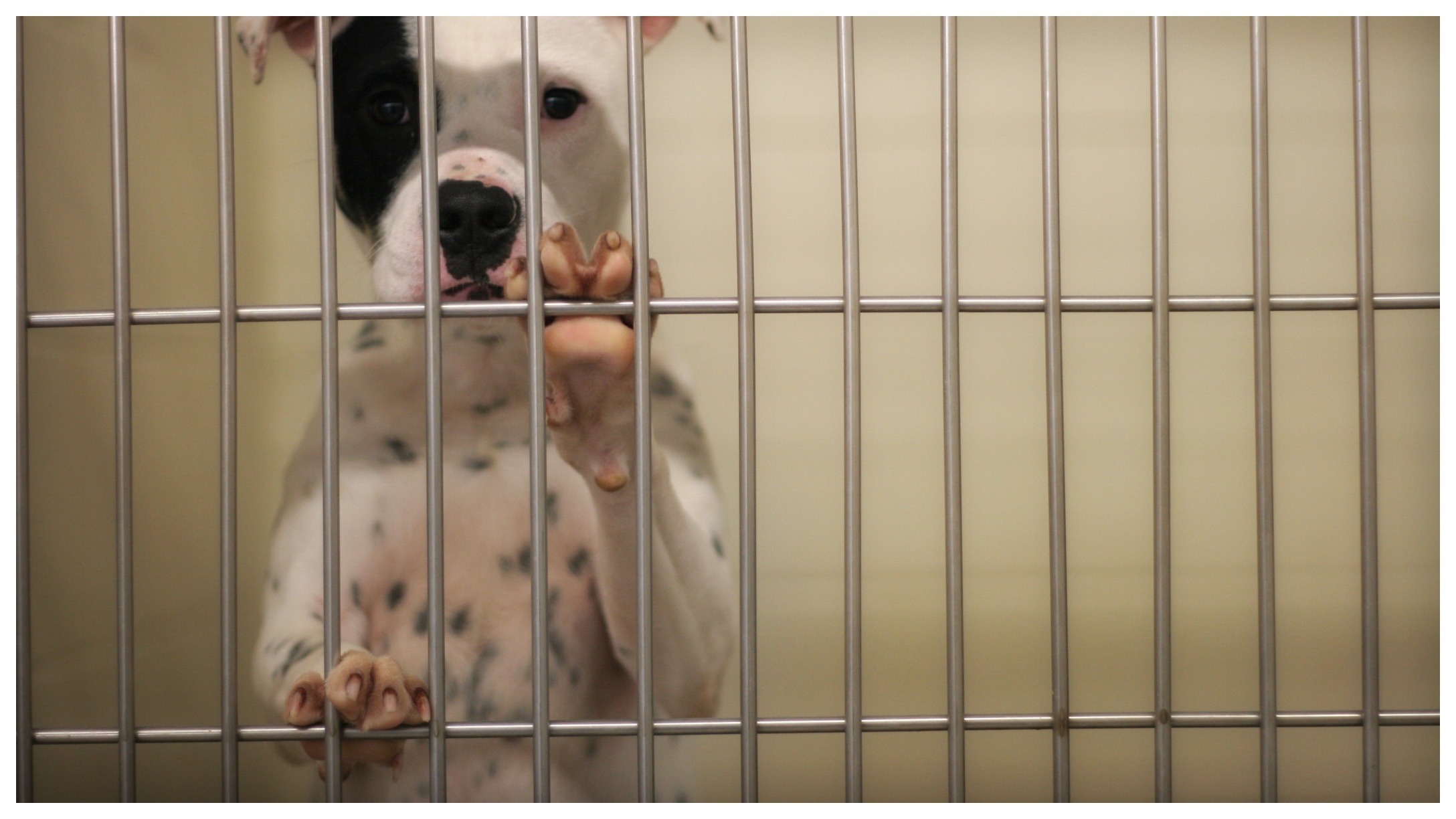
Last year, on a total whim, I went to a puppy shelter to bring home my new BFF. My son and I planned to keep an open mind about what dog we might bring home. We promised each other we wouldn't fall in love with one dog too quickly. But, as it goes, the first dog we picked up literally wouldn't let us put him down. He was clinging so hard to me, practically begging to be taken home.
His sneaky tactic worked! His little paws were hanging onto me so hard, I just couldn't plop him back in his crate. Plus, he was completely adorable and the last one in his litter. His little body was black and brindle. And he had the cutest white stripe on his nose.
We were sold, and we eagerly brought home our new pup.
My daughter, who is not the animal lover of the family, named him Jughead. He was kind of a goof, and the name stuck. But soon our goofy puppy started to demonstrate some concerning behavior.
I'm definitely a dog person, but I didn't actually adopt my first dog until about six years ago. With that pup, I totally lucked out. Pie was a very old boy who had been at a shelter for a long time. He had health issues, and no one wanted him. But he was 7 years old and pretty well-trained. That meant he was basically the perfect family dog. Plus, he just lazed around all day. Essentially I knew nothing about training a dog, but I was prepared to do the work.
As I came to find out, I really didn't know what I was in for with the new dog I adopted.
The first thing that Jughead started doing that concerned me was growling at guests, and sometimes my son. He'd growl for seemingly no reason. Sometimes, he'd even snap, which seemed like a warning, but he wouldn't bite. I'd never seen my other dog do this. At first, I thought maybe it was just regular puppy stuff. After all, he was still getting used to his new home.
But then I got a serious wake-up call one day. My son walked by Jughead while he was eating from his bowl on the kitchen floor, and without warning the dog lunged at my son, nipping him on the cheek. Luckily, it wasn't a hard bite, but of course it terrified me and my son completely.
As Jughead grew, so did the number of incidents we were seeing. He'd growl around his food bowl, and I had to make a rule that no one was allowed in the kitchen while he was eating. But he'd also growl around bones, treats, and even his dog bed. I didn't know what any of his strange behavior met, and truthfully, I was scared he might really hurt someone. That's when I called in a professional.
Jughead was about 5 months old when I realized the issue was serious. He'd lunged at and bitten my son, and he'd attacked Pie, an innocent old man of a dog, for getting near a bone. So I hired an expert who helps all kinds of dogs but takes a special interest in dogs with resource guarding issues, which is what she told me Jughead had going on.
The first night of training came, and I had had no idea what to expect. The trainer told me we were changing everything — I mean everything — about Jughead's routine. He'd no longer be fed from his bowl. I had to hand-feed him all of his meals. He needed to be on a leash all of the time. I had to make better use of his crate, and she said he needed a muzzle.
After the trainer left, I cried. Actually, I spent a full week crying. I was so overwhelmed at having to hand-feed my dog all of his meals. I was overwhelmed by him barking in his crate — which I needed to utilize for safety. Having him on a leash all day to correct bad behavior was so much work. I truly didn't feel like I could handle it.
But his training started to progress. After a few weeks of both me and my son hand-feeding the dog, my son then started holding the bowl for Jughead to eat from. The trainer had us practice this while she was there for safety, but Jughead was also on a leash while we fed him. That way, if he pulled even slightly, I could yank him quickly.
We were working on a ton of things at once because, well, Jughead was kind of a mess. But most importantly, we were trying to build some trust between him and my son. That involved my son getting to give him a lot of treats. He'd rub a treat on one hand and let Jughead touch his nose to it. When he did this correctly, he'd say "touch" and give him the treat from his other hand. Slowly but surely, I started to see Jughead relax around my son. And finally, the trainer said we could put the food bowl on the ground.
Training a dog with resource guarding issues has not been easy. In fact, it's been exhausting. And while I'd love to say that my dog is like a brand-new dog who doesn't have these issues after going through six weeks of hard-core training, that's not the case. The truth is, I'm not sure they will ever be completely resolved. I have to muzzle Jughead while we're hanging out in the evenings, so that I don't have to watch him every minute. And there is still a lot of worry around food. He hasn't nipped anyone again, but he has growled a few times, which makes me know the issue is still there.
I do expect Jughead's behavior to improve with continued training. But the truth about training a dog with resource guarding issues is that it is a lot — it's certainly more training than I knew how to do, or expected I'd have to do.
With all that being said, Jughead is a smart, adorable dog, and we love him. After worrying that I might have to give him up, that fear is fading as I see him adjust more and more. Still, some issues are simply ingrained in a dog's DNA. That means there might always be work to do.




